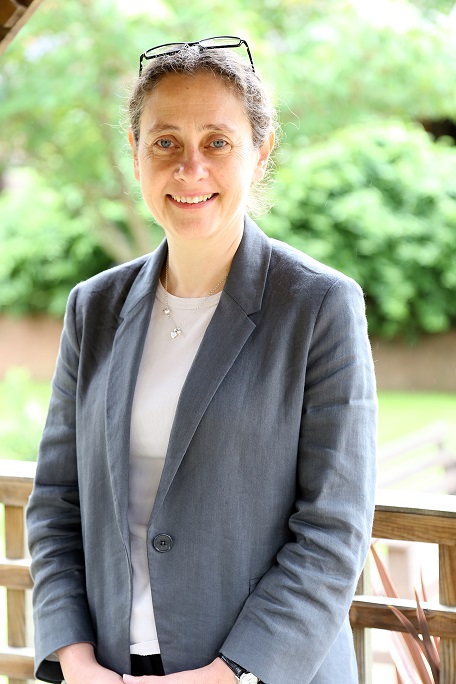
Often, the most challenging changes are the ones where transformation is disguised by a veneer of ‘business as usual’. This is certainly true in the case of higher education. While parents may be forgiven for thinking that the system – with UCAS form-filling, the personal statement, and firm and insurance offers – looks very much like the (good?) old days, nothing could be further from the truth.
Seismic changes have radically changed the landscape:
– the globalisation of higher education and its impact on UK universities
– the introduction of university tuition fees
– A Level reforms
Together, they have altered beyond recognition the nature of the HE guidance students need if they are to negotiate the process successfully.
The globalisation of HE has opened up new vistas for our students. Take as a case study our 2017 Leaver, Lauren Cunild. Armed with stellar A Levels in Geography, Maths, Further Maths and Spanish, Lauren went in pursuit of her dream of a place at an American university and has landed the Woodruff Scholarship to study Liberal Arts at Emory in Atlanta. Beating the competition (and there were over 10,500 applicants for the Woodruff) required a first-rate application backed by impeccable references as well as drive and determination, which Lauren has in spades, but her example shows what can be done, with the right guidance, by ambitious students who want to look beyond the borders of our shores.
The flip side of this, of course, is that competition from international students has intensified pressure on places at Britain’s elite universities.Across the country last year, 19% of the undergraduate population came from overseas.At the London School of Economics, the figure was 68%. The idea that the exam halls of British schools are the seed bed of the next generation of British undergraduates is a thing of the past and the guidance that schools provide for the sixth-formers making their way through the system must address this barely-recognised new reality.
Excellent A Level grades are, in this context, necessary but not sufficient.This is why, at the High School, we take a ‘portfolio approach to a portfolio world’, with students building individually-tailored programmes, adding elective courses, EPQs, MOOCS and experiential or service strands to their A Levels, and curating their own online portfolios to present themselves to the outside world. Guidance on international applications is a standard part of the package.
While the impact of global mobility has been significant, it has been slow and gradual compared with the disruption to the HE sector caused by the introduction of tuition fees. The shift in emphasis from a providers’ to a buyers’ market, coupled with the proliferation of university-status institutions and degree-level courses, has heralded changes which no one fully predicted, let alone planned for.
Though the number of students choosing to go to university has not declined, the increasing interest in high-level apprenticeships (including degree apprenticeships, up by 27% last year) is expected to have a knock-on effect in the not-too-distant future and all good sixth-form guidance these days should include advice on these routes. The introduction of consumer economics into the equation means that universities have entered a world of published league tables, a move which bodes ill for the bottom-ranking University of Suffolk, while Russell Group has (not entirely justifiably) set itself up as a universal marque of superior quality. An abundance of data may appear to make the task of choosing courses easier but the reverse is actually the case, as students find it difficult to separate the wheat of meaningful information from the chaff of trivial pseudo-stats.
Target-driven admissions departments are increasingly using unconditional offers to lure candidates into the ‘certain’ category, rendering the process of managing offers even more complex. Gone are the days when one simply ‘firmed’ one’s dream choice and accepted a lower, safe offer as insurance. Students now need an inside track on the tactics of offer management and an expert guide to the terrain of post-results adjustments. The work of matching applicants to places (with students trading up as well as down) occupies the savvy Director of Sixth Form for many days, even weeks after results day.
Finally, A Level reform. Here, the effects, like the reforms themselves, are still unfolding but some key developments are already clear. The demise of AS Levels as a halfway stage to A Level has put a new pressure on GCSE results as a benchmark against which admissions tutors can make their judgement. The quality of personal statements and references in presenting the applicant in the round (in a world where excellent predicted grades are commonplace) has taken on a new significance. With this in mind, for teachers and tutors (and the Head, of course) to know the students well as individuals is highly advantageous. Small, close-knit tutor groups, in a Sixth Form that is not too big to feel homely and familiar, are best.
Some of the highest-ranking universities have resorted to aptitude tests as a selection tool and more elite institutions are likely to go down this route, with all that this implies in terms of preparation and practice for the student and a premium on intelligence about trends and case histories in schools. And here is where harnessing the power of the GDST network comes in. With 24 other Directors of Sixth Form (and Heads) to compare notes with and access to the contacts and specialisms of the Skills and Alumnae Teams at Head Office, we gain strength in numbers with none of the attendant pitfalls of large, anonymous institutions.
When steering through today’s pre-HE labyrinth, nothing less is good enough.
Sources
https://www.theguardian.com/education/2015/may/28/study-abroad-uk-students-overseas
http://www.bbc.co.uk/news/business-35429233
Further reading
https://www.russellgroup.ac.uk/media/5272/informedchoices-print.pdf